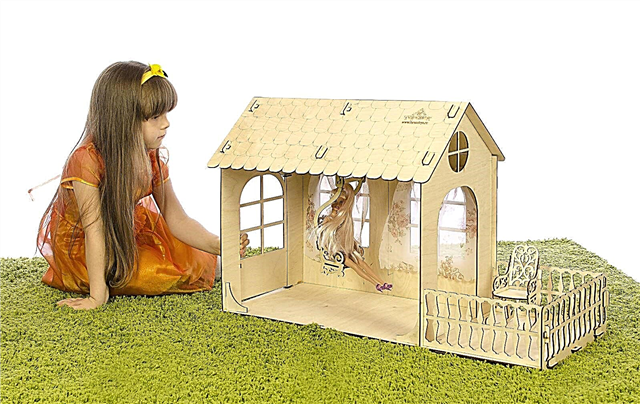For a 2-month-old baby, crying is perhaps the only way to show his parents that he is annoyed, scared, or in pain. Therefore, if a child is constantly crying for 2 months, he should not be ignored in any case. The first thing that needs to be done is to understand what exactly is the reason that makes the crumb be capricious.

Baby's tears break her parents' hearts
The most common reasons
Most often, a two-month-old baby roars in one of the following cases:
- wants to eat or drink;
- the diaper is wet;
- tired and wants to sleep.
Other reasons for crying
It's not just physiological needs that make a baby cry. Often he cries just so that his mother would pay attention to him. Such tears dry up immediately after the child's call is heard, and he is taken on the arms.
Sometimes the answer to the question of why a 2 month old is crying lies in fear. At the same time, he can be frightened of anything: a sharp sound, screaming, blinking, bright light, a working TV. In this case, crying, the baby calls for help.
Important! If a baby starts to cry, don't be afraid to pick him up. Otherwise, severe damage will be done to his psyche, because the baby will have to cope with loneliness and a sense of fear on his own.
Very often, a child can constantly scream at 2 months old if he experiences a feeling of discomfort from overheating or cold. The child's body is still very imperfect at two months old, and its thermoregulation system works very poorly. If the baby is hot, he turns red, begins to sweat, begins to wake up more often and rush around the bed, trying to get rid of the blanket. As a result, he will inevitably start crying, if the baby is not helped, he will not sleep all night.
Bathing in insufficiently warm water, eye contact with shampoo and many other factors can lead to tears.

Sometimes it is not easy to determine the cause of a child's cry.
Discomfort is often caused by folds in clothes, buttons, too tight seams on a vest. When the child is two months old, parents are advised to be very careful in choosing clothes and bedding.
Reasons for crying heavily
If a child at 2 months cries very hard all day, and it is not possible to calm him down, the condition has arisen for one of the following reasons.
Colic
If the baby screams very loudly, and the roar does not stop for more than three hours or lasts the whole evening, there is a high probability that he has a stomach ache. Most often it turns out that he is worried about intestinal colic. Usually, a similar problem develops in children, starting from two weeks of age, and can continue until the baby is one year old. Colic can be diagnosed not only by the incessant crying. The crumb begins to bend with the whole body, presses the legs to the tummy, the face becomes red, and the sleep is restless.
Note. The cause of childhood colic is associated with the imperfect work of the digestive system in infants. Gas bubbles accumulate in the intestines, which cause pain.
Special anti-colic mixtures for newborns, which are designed specifically for babies with digestive problems, can help the child. If they are used regularly, the child's gastrointestinal tract will quickly be in order and will work normally.

Until the baby can speak, crying is his only way of expressing dissatisfaction.
Eating
If the baby is capricious during the meal once, it is hardly worth worrying and thinking about what to do. If the problem begins to be frequent or persistent, it is worthwhile to figure out what is happening.
There is a possibility that the baby has thrush or stomatitis and the feeding process is painful. In this case, the baby will not stop being capricious even after eating - as a rule, upon the fact of eating (even if it is liquid), inflammatory processes inside the mouth tend to exacerbate.
However, crying during or after a feed is not always a bad sign. The child may not like the taste of the formula, may be undernourished or overeat, or simply thirsty.
When a baby is breastfed, the following factors most often become the causes of moodiness:
- somatic pathologies accompanied by pain syndrome;
- mastitis or lactostasis;
- a change in taste or odor in breast milk.
If a baby is fed formula, he may cry for any of the following reasons:
- incorrect selection of the mixture;
- accumulation of air in the intestines due to too large a hole in the nipples;
- when feeding, discomfort is caused by the mother's hand holding the bottle with a nipple.
When urinating
Painful urination, which makes babies cry a lot, cannot be explained by external factors. In most cases, we are talking about a pathology or an inflammatory process.
In girls, pain during urination is often associated with various types of inflammation of the genital mucosa: vulvovaginitis or diaper rash with swelling of the urethra. In boys, tears can be attributed to fusion of the foreskin. You can diagnose this pathology by carefully observing the stream of urine - in this case, it is directed slightly to the side. Pain is often associated with narrowing of the urethra.
If the roar of a baby is directly related to urinary tract diseases, crying at first is more like a whimper. Before peeing, the baby begins to roar loudly and even scream. The problem is often accompanied by an increase in body temperature and requires compulsory treatment. Delaying the visit to the hospital is not recommended in the most urgent way.
During bowel movements
Sometimes parents notice that when straining and the act of defecation, babies frown and cry. At two months of age, this is often associated with the adaptation of the functioning of the excretory organs. The baby simply does not understand what is happening to him, is frightened and shows it in the only way available to him. The problem may also be related to the presence of diaper rash or small cracks in the anus.
If a child has constipation, and his tears are directly related to the impossibility of performing an act of defecation, measures should be taken to eliminate it. This will require determining the cause of the problem. Sometimes it is enough to transfer the crumb to a different mixture. As a laxative, dried fruit compote or raisin decoction are perfect.

If crying is hysterical and lasts a long time, you must definitely show the child to the doctor
How to help your baby
On many "mothers" forums they write that there is nothing wrong with the fact that a child cries all the time at 2 months. On the contrary, some are convinced that roaring is even useful - with its help, the baby's lungs develop. In fact, this point of view has nothing to do with reality. Crying for an infant is harmful - with a high degree of probability, in the foreseeable future, this will affect both his health and behavior. A healthy and happy baby will not be capricious for no reason. This means we must look for the cause of the problem and a way to help the baby.
If there are no pathologies that cause pain and tears, it is easier to calm a baby under 3 months of age than it might seem. When the child was in the womb, certain conditions became familiar to him. Experts say that the memories of them are preserved in children during the first months of life. If you reproduce some actions that remind the baby about intrauterine life, he is likely to feel more confident and calm. We are talking about the following methods:
- swaddling (reminds the baby of the last months in the womb, when there was not enough room for free movement);
- swaying (the feeling of swaying with each movement of the mother accompanied the child throughout the entire period of gestation);
- hissing (this is how the sounds of maternal breathing were heard to the baby inside the uterus);
- laying on a side (the most familiar posture for a newborn);
- sucking on a breast or a pacifier (the sucking reflex begins to develop already in the last stages of gestation).
In an older infancy, the described methods will no longer work, but for a two-month-old baby they will be more than effective.

Whatever the reason for the roar, the baby should definitely try to calm down
You can also go the standard way: after making sure that the baby is feeling well, sing a lullaby for him, bathe in warm water, turn on soothing music, vilify him in your arms, shake him in the cradle, or in any other way demonstrate love and care. Mom's gentle voice and the warmth of her hands will soothe even a hungry or tired baby.



